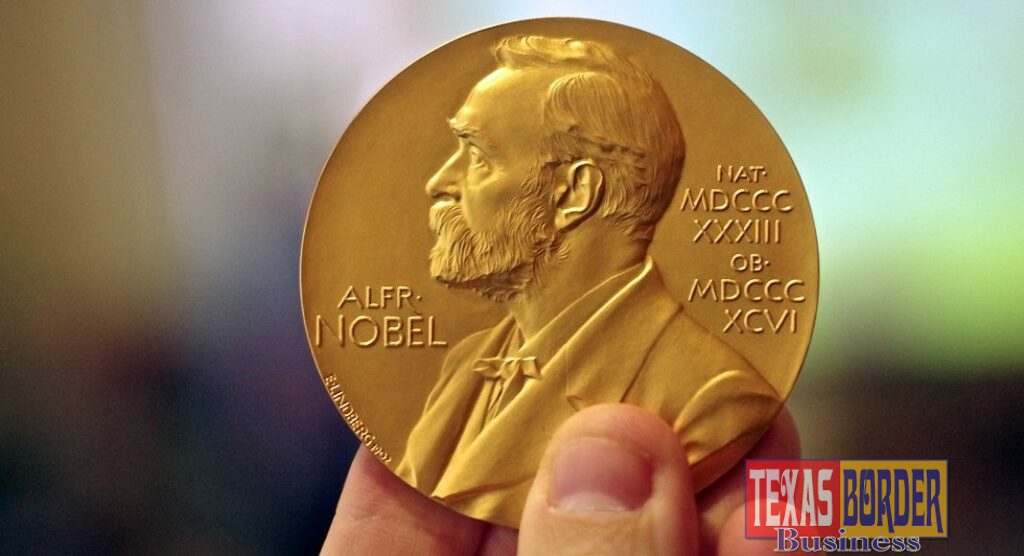
Texas Border Business
THE ECONOMIST
M. Ray Perryman

Often, the Nobel Prize in Chemistry involves advances that, while important, are difficult to comprehend for mere mortals (it took my late friend Rick Smalley many attempts before I came to somewhat grasp the mysteries of nanotechnology that led to his Prize in the 1990s). This year is different. The discoveries enabled by the three scientists who won this year affect technologies we hold very near and dear and use daily (many of you even as you read this column).
The Royal Swedish Academy of Sciences awarded the Nobel Prize in Chemistry 2019 to John B. Goodenough, M. Stanley Whittingham, and Akira Yoshino for their contributions to the development of the lithium-ion battery. Both Drs. Goodenough and Whittingham are teaching at American universities, with the 97-year-old Dr. Goodenough being at the University of Texas at Austin (UT Austin).
Dr. Goodenough was born in Germany, received his doctorate from the University of Chicago, and is now the Virginia H. Cockrell Chair in Engineering at UT Austin. He built on the work of Whittingham in early rechargeable batteries, increasing their potential by using metal oxides instead of metal sulfides. He also set forth the idea that batteries did not have to be manufactured in their charged state but could instead be charged afterwards. These findings were major steps toward effective, lightweight rechargeable batteries.
It is likely that one or more of the batteries made possible by these discoveries is currently within your reach or even in your hand. Lithium-ion batteries are essential to cell phones, laptops, tablets, and countless other devices. They are also needed for electric cars and storing solar energy.
In fact, it is difficult to overstate the impact of the contributions of John Goodenough and the other winners to Texas and the world. Their research was instrumental in battery advances that have enabled the emergence of entire massive industries, multi-billion-dollar companies, and solutions toward some of society’s most difficult and pressing problems. A major slice of the Texas, US, and global economies would simply not exist in their current form without lithium-ion batteries, which in turn would not exist with an efficient and scalable platform without the pioneering work of Dr. Goodenough.
The ongoing research at UT Austin and other institutions across the state enhances Texas’ position in the global economy and helps encourage emerging industries to take root and grow in the state. These top-tier institutions are also instrumental in developing the sophisticated workforce needed to compete on an international scale. Greater investment in fundamental research will only enhance Texas as an economic powerhouse. Hats off to Dr. Goodenough, whose work transformed our economy and our world for the better for generations to come.
Dr. M. Ray Perryman is President and Chief Executive Officer of The Perryman Group (www.perrymangroup.com). He also serves as Institute Distinguished Professor of Economic Theory and Method at the International Institute for Advanced Studies.













